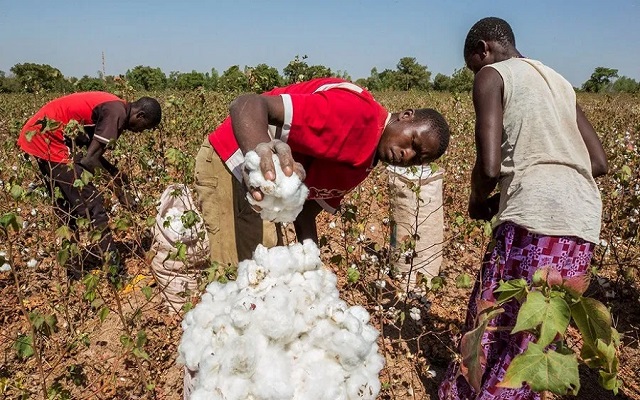The Cotton Producers and Merchants Association (COPMA) has announced that it is set to recover the N4 billion loan disbursed by the Central Bank of Nigeria (CBN) to cotton farmers.
According to New Telegraph, the loan, which was disbursed under the Anchor Borrowers Programme (ABP) by CBN, was sent across cotton-producing states in the country.
Speaking during the inauguration of the recovery committee that was set up to recover the loan, Alhaji Lawal Matazu, National President of COPMA, said that the programme was one of government’s policy to restructure the nation’s agricultural sector so as to enable farmers get economic freedom.

He said that it was crucial for the loan to be recovered because for the government to have given out the ABP loans, it shows its confidence in the ability of the cotton farmers to pay back.
“The programme is aimed at providing an opportunity for the common man, the peasant farmer especially, to have access to an agricultural loan at its doorsteps without any collateral or all those conventional protocols and at cheaper rate charges,” Matazu said.
He also emphasized the need for the recovery committee to use all available and peaceful avenues to recover the loans for the sustainability of the programme as it was designed as a revolving loan.
Also at the inauguration was the National Secretary of the association, Alhaji Kamilu Sheikh Munnir, who said that the programme was established by the Federal Government in 2016 for cotton farmers to access seeds and other inputs as it was designed as a simple loan.
“COPMA came into the programme in 2017 and each farmer/beneficiary was allocated three hectares. All that was distributed to them were in the form of seeds, pesticides and other inputs and the repayment is expected to be with the cotton produced by the farmers, not in cash.”
What you should know: So far, the programme has reportedly engaged 22,000 farmers across the country. It has covered 24,000 hectares of farms with an expected yield of 36,969 metric tonnes of cotton that will cost N4 billion.












